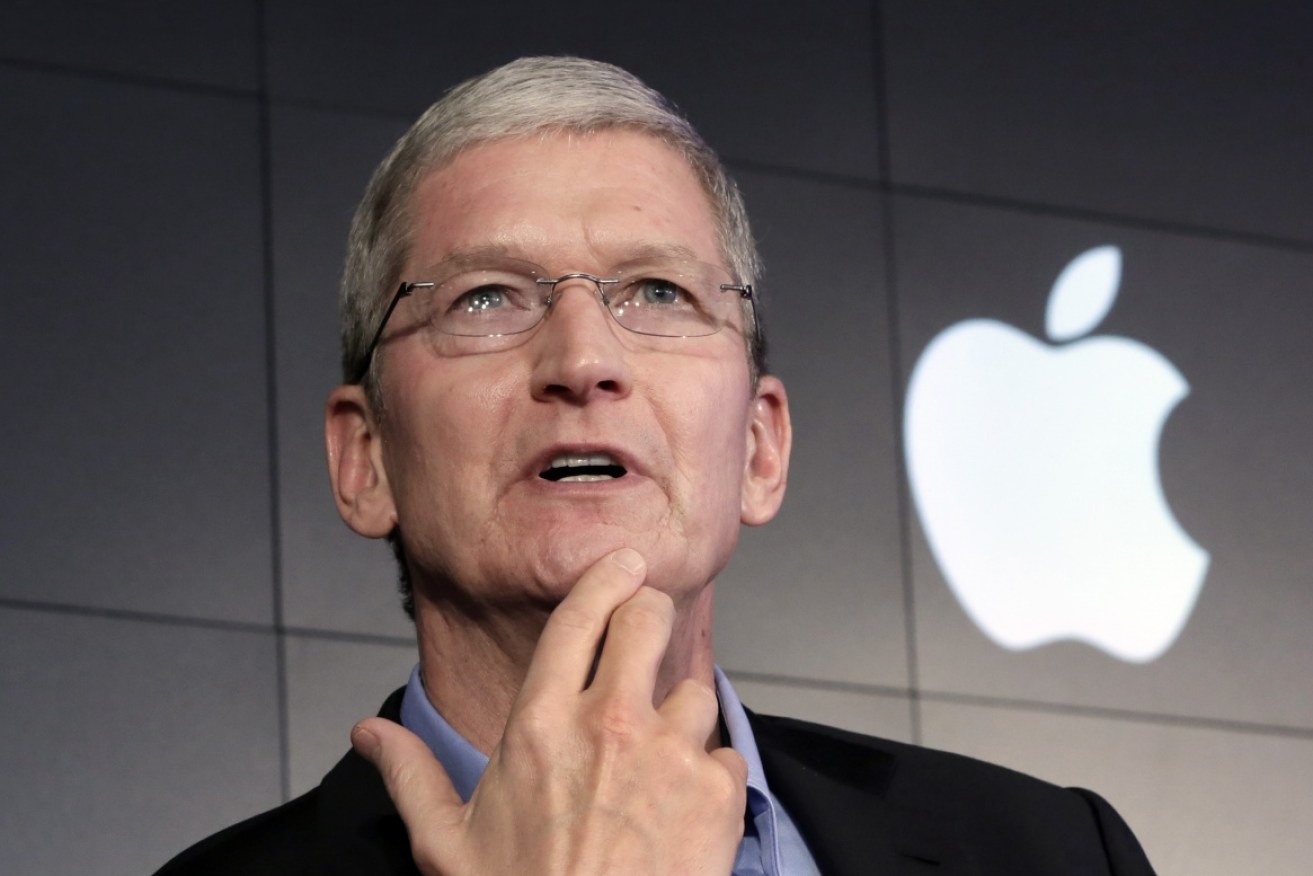Apple ordered to pay $A19 billion tax to Ireland

Apple chief Tim Cook says the company would appeal any unfair hearing. Photo: AP
Apple and the Irish government say they will appeal an EU ruling that the US technology giant must repay up to 13 billion euros ($A19.15 billion) in taxes, in what could trigger years of legal wrangling.
The European Commission found that Dublin had “substantially and artificially” lowered Apple’s tax bill in Ireland since 1991, giving the company an unfair competitive advantage, in a highly anticipated and controversial ruling.
The news weighed on Wall Street in early trade as Apple dragged down technology stocks, with the S&P 500 technology index taking its biggest hit in nearly a week.
“Ireland granted illegal tax benefits to Apple which enabled it to pay substantially less tax than other businesses over many years,” said EU Competition Commissioner Margrethe Vestager.
“This selective treatment allowed Apple to pay an effective corporate tax rate of 1 per cent on its European profits in 2003, down to 0.005 per cent in 2014,” she added. This amounted to a minimum of 50 euros in taxes per 1 million euros in profit.
But Apple’s general counsel Bruce Sewell said the commission “fundamentally misunderstands” a core aspect of the company’s business, predicting that appeal proceedings could “drag out over several years.”
Irish Finance Minister Michael Noonan disagreed “profoundly” with Tuesday’s ruling and said he would seek Cabinet approval to appeal it.
“This is necessary to defend the integrity of our tax system; to provide tax certainty to business; and to challenge the encroachment of EU state aid rules into the sovereign member state competence of taxation,” he said in a statement.
Dublin insists it has played by the rules and has not given Apple favourable treatment. The company employs close to 6000 people around the Irish city of Cork – more than one per cent of the local population.
Apple chief executive Tim Cook accused the commission of trying to “rewrite Apple’s history in Europe, ignore Ireland’s tax laws and upend the international tax system in the process”, warning of a “profound and harmful effect” on investment and job creation in Europe.

Apple has been accused of hiding tens of billions of dollars from tax collectors. Photo: Getty
The Apple case, which the commission has been looking into since mid-2013, is one of several high-profile probes into tax deals that EU member states granted multinationals including Starbucks, Amazon and McDonald’s.
Customers buying Apple products across Europe, the Middle East, Africa and India were in fact purchasing them from the company’s European headquarters in Ireland, the commission found.
But the bulk of these profits were allocated to a head office that “only exists on paper”, Vestager said. “It has no employees, no premises and it has no real activities.” Its profits also went untaxed.
The commission demanded that Dublin recoup unpaid taxes and interest payments from 2003 – 10 years before the start of the inquiry – until 2014, when Apple changed its structure in Ireland. The Irish tax authorities must now calculate the full amount due.
The repayments to Ireland could be reduced if other countries claim a share of the tax bill or if Apple were required to pay more to its US parent company for research and development, the commission said.
“Ireland granted illegal tax benefits to Apple which enabled it to pay substantially less tax than other businesses over many years.”
EU Competition Commissioner Margrethe Vestager
The ruling was welcomed by EU lawmakers and by the anti-poverty group Oxfam, which called for an end to “terribly damaging” corporate tax deals.
Last year, the commission ordered the Netherlands and Luxembourg to recoup taxes from the Starbucks coffee chain and a Fiat subsidiary. Inquiries are still underway into benefits granted to online retailer Amazon and McDonald’s.
Taxation is a national competence in the 28-country EU, but the commission believes it can intervene because these tax arrangements constitute state aid, an area it regulates.
But the Irish government said the approach is “not appropriate,” in a statement that expressed “very real concerns” that the commission is “undermining the international consensus, impeding reform and creating uncertainty for business and investment in Europe.”
Last week, the US Treasury lashed out at the commission’s approach, arguing that it is “inconsistent” with international norms and undermines the global fight against tax avoidance.
But Vestager rejected the criticism.
“We share the approach with the US of fair global taxation for the benefit of the citizens of all countries,” she said.








